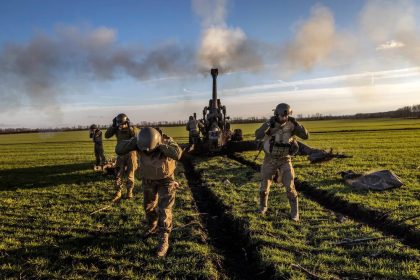The average income of Registered Nurses in Canada is $70,853,000 per year or $36.33 per hour. Rookie nurses earn an average of $57,029 annually, compared to $81,638 for experienced nurses.
The migration of medical personnel to Canada has become more colorful due to the epidemic of the corona virus, and in the meantime, the migration of nurses to Canada has a special place. This is despite the fact that Canada needed nurses and medical staff before the Covid-19 disease and was facing a shortage of personnel in this field. Therefore, the Canadian government has considered several routes for the migration of nurses and medical staff to this country.
If you plan to continue your nursing activity in Canada and benefit from its advanced facilities, in this article you will get all the necessary information to immigrate to this country.
The immigration conditions of home nurses to Canada are different from those of hospital nurses.
Methods of immigration of nurses to Canada
Through Canadian permanent residency programs such as Express Entry and provincial immigration programs
Receiving a job offer from Canadian employers, then obtaining a Canadian work permit and work visa, and finally applying for permanent residence in Canada.
Studying in the field of nursing, getting a Canadian study visa, then getting a work visa after studying in Canada and finally applying for a permanent residence in Canada after studying.
Procedures for nurses to immigrate to Canada
Before we talk about the necessary steps for nurses to immigrate to Canada, first you need to know the types of nursing job classifications in Canada:
In the National Occupational Classification of Canada or NOC, nurses are divided into two groups:
Registered Nurse-RN and Registered Psychiatric Nurse-RPN:
These nurses study nursing in the 4-year university course. Psychiatric nurses graduate from the field of nursing and psychiatry. The knock code of these jobs is 3012 and their job skill level is A.
Licensed Practical Nurses (LPN):
These nurses usually completed a one or two-year nursing course in a college (not in a university) and received a diploma. These nurses have a lower skill level than the nurses of the first group. They have NOC code 3233 in Canadian NOC classification and their job skill level is B.
In order to choose the right migration path, you need to know your job code and skill level.
RCO CANADA
The first step: Evaluation of educational qualifications through the Organization for the Evaluation of Nursing Qualifications in Canada
If you have studied nursing in Iran and now you plan to immigrate to Canada, the first step is to evaluate and equate your qualifications through the Canadian National Nursing Assessment Service (NNAS). This assessment is to determine the validity of your nursing degree based on Canadian educational and academic standards.
When you apply for your credential evaluation online, you must specify your nursing category (RN, RPN, or LPN) as well as the province where you plan to practice later. Because each Canadian province has its own Canadian Provincial Nursing Regulatory body, which considers the provincial standards and conditions to determine the skills, experience and qualifications of nurses, and these standards are different in the nursing supervision bodies of different Canadian provinces.
Requirements for the evaluation of qualifications through NNAS
In order for NNAS to evaluate your documents, you must meet certain conditions:
Get your university degree in nursing outside of Canada.
Register in the nursing association of your country and have a nursing license.
Have at least 5 years of nursing experience.
Have the required score of one of the language tests:
IELTS minimum score of 7 (Speaking: 7 | Listening: 7.5 | Reading: 6.5 | Writing: 7)
CELBAN test (Speaking: 8 | Listening: 10 | Reading: 8 | Writing: 7)
TEF test
(Speaking: 5 | Listening: 5 | Reading: 4 | Writing: 4 | Vocabulary: 4). This test is used for French-speaking provinces.
The second step: Registering with the Canadian Nurses Association or the Regulatory Council of Practical Nurses in Canada and getting the necessary license
In order to work in Canada and obtain the necessary qualifications as a registered nurse RN or Canadian practical nurse LPN, you must register with the CNA (Canadian Nurses Association) or CCPNR (Canadian Council for Practical Nurse Regulators) to meet the requirements. get checked But since the nursing qualification conditions are determined by the nursing board of each province, before registering for CNA and CCPNR, you must first register with the nursing board of your desired province.
After the results of the document evaluation are determined, NNAS sends its report to the designated provincial nursing board. At this stage, your documents and work records may be approved as a foreign nurse, in other words, you may be approved and licensed, or you may be asked to take more nursing courses in Canadian educational institutions. In this case, you cannot enter the next stage and you must meet the academic requirements first.
In the following section, you can see some of the nursing supervision institutions of the Canadian provinces. To register in any province, you can click on it:















